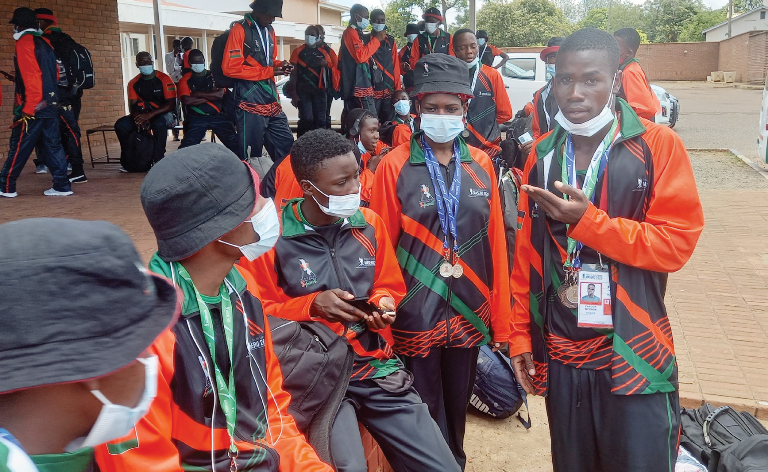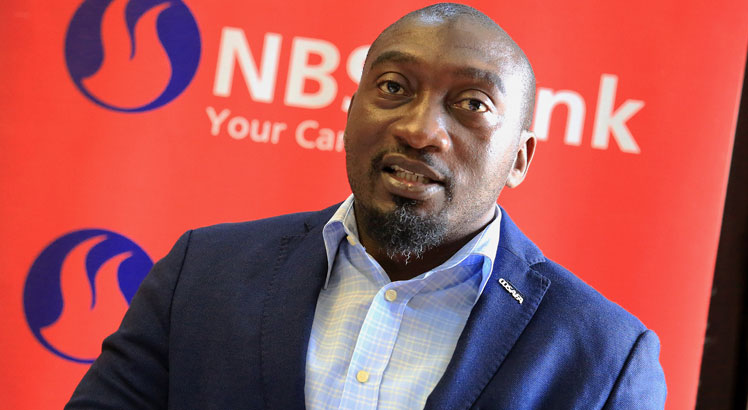12 left behind in Lesotho after Region 5 Games
Twelve Region 5 Youth Games Team Malawi members, including eight athletes, have been left behind in Maseru, Lesotho to under-go a 10-day quarantine after being diagnosed with Covid-19.
They comprise four judo athletes, three runners, a taekwondo athlete and four officials.

Minister of Youth and Sports Ulemu Msungama and one of Team Malawi’s doctors Mabvuto Chawinga on Monday confirmed the development at Chileka International Airport in Blantyre upon the team’s arrival through a chartered plane.
Team Malawi, which hauled 29 medals, including two gold, sent 84 athletes and 28 officials to the two-week long event.
Said Msungama: “The individuals that are left behind will return home once they test negative within the 10-day quarantine period.
“But overall, we are happy with the performance of the team at the games. Winning a record number of 29 medals is something we are proud of. It shows that we can even do much better if we prepare well ahead of the next games, which Malawi will host in December next year,” he said.
According to Chawinga, the team members left behind were asymptomatic and there is hope that they will be released within the next few days.
He added that the rest of the team will be quarantined for some days before being released to their families.
On her part, Paralympics athlete Tawonga Kamwendo, who won gold in 200-metre women T-13 race, said she was happy to have done it on her debut international appearance.
“This is a great achievement for me and I would like to do the same when Malawi hosts the next games. I would urge the authorities to give us the necessary support to prepare well for the next event,” she said.
At the games, at least 150 athletes and officials out of 6 142 tested Covid-19 positive since November 24, putting positivity rate of infections at two percent, according to an article on Lesotho government website www.gov.ls.
Team South Africa announced on its official website their withdrawal from the games with a few days before the conclusion of the event due to the increasing Covid-19 cases within their fold.
Team Malawi returned home in one group at the end of games through a chartered plane.
rights of the league and kit sponsorship. In the current contract, TNM had both by virtue of procuring kits for the teams,” said Somba-Banda.and the key ones are the naming
“But now, TNM has relinquished the kit sponsorship and redirected the funds to prize money. The teams now have an opportunity to land their own kit sponsorship. This is in line with our professionalism and football commercialisation agenda.”
The Sulom president said the league sponsors’ logo will now be placed just below the collar.
Apart from increasing the winners’ prize, TNM has also enhanced prize money for Player-of-the-Season from K500 000 to K2 million. That is on top of the K3.5 millon worth Mazda Demio that Sulom bought through other revenue sources.
On whether the improvement in prizes will also trickle down to other awardees such as runners-up, the Sulom president said “we will come up with the finer details within the week”.
Top-flight league clubs have described the latest development as the best way to go in professionalising football in the country.
Nyasa Big Bullets chief administration officer Albert Chigoga said: “This is the way to go to help the clubs that struggle financially. Now that TNM has relinquished kit sponsorship, clubs will now search for their own sponsors and make revenue in return.”
On his part, Silver Strikers chief executive officer Thokozani Chimbali also said it is a move in the right direction as it gives the clubs a chance to partner with other entities on kit sponsorship.
“That’s what commercialisation demands and that is the trend all over the world. We have welcomed this and we thank TNM for this,” he said.
Nevertheless, Chimbali believes Sulom can do better to identify co-sponsors for the elite league as the overall sponsorship hike of at least 11 percent from K90 million to K100 million is not good enough. “I think Sulom can do more as there is an opportunity to partner other entities on overall sponsorship because the Super League needs more funding. We can do better than the current sponsorship by getting co-sponsors and that is Sulom’s job,” he said.




